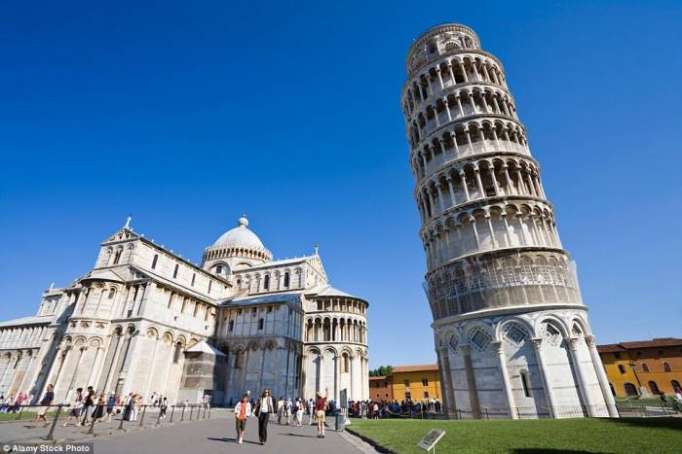Now, researchers, they believe they have the answer - soil.
Despite leaning precariously at a five-degree angle, leading to an offset at the top of over five metres, the 58-metre tall Tower has managed to survive, undamaged, at least four strong earthquakes that have hit the region since 1280.
The research team concluded that the survival of the Tower can be attributed to a phenomenon known as dynamic soil-structure interaction (DSSI).
'Ironically, the very same soil that caused the leaning instability and brought the Tower to the verge of collapse, can be credited for helping it survive these seismic events,' said Professor Mylonakis, of the Department of Civil Engineering at the University of Bristol, who led the study.
The research team concluded that the survival of the Tower can be attributed to a phenomenon known as dynamic soil-structure interaction (DSSI).
The team say the considerable height and stiffness of the Tower combined with the softness of the foundation soil, causes the vibrational characteristics of the structure to be modified substantially, in such a way that the Tower does not resonate with earthquake ground motion.
This, they say, has been the key to its survival.
The unique combination of these characteristics gives the Tower of Pisa the world record in DSSI effects.
Professor Mylonakis, from Bristol's Department of Civil Engineering, was invited to join a 16-member research team, led by Professor Camillo Nuti at Roma Tre University, to explore this Leaning Tower of Pisa mystery that has puzzled engineers for many years.
Given the vulnerability of the structure, which barely manages to stand vertically, it was expected to sustain serious damage or even collapse because of moderate seismic activity.
Surprisingly this hasn't happened and until now this has mystified engineers for a long time.
Results from the study have been presented to international workshops and will be formally announced at the 16th European Conference in Earthquake Engineering taking place in Thessaloniki, Greece next month
The Daily Mail
More about: Pisa
















































